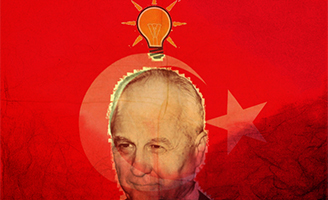Öney: Turkey’s ethnic cleansing
Sezin Öney on the Haberdar news site notes that President Erdoğan on March 11 stated that “We are going to build a new Southeast.” It seems that the state is executing a specific project. Since last summer, a “military-civilian coalition” or what should perhaps more accurately be called a “comradeship-in-arms” has been established at the highest echelons of the state. The different elements of this coalition or comradeship may not see eye to eye on every issue, but there seems to be an agreement between them regarding the execution of a specific project aiming at the reconfiguration of the Southeast. Why was the need felt to send in all the elements of the security forces, deploying excessive violence, into the city centers? The area is being “cleaned,” to use military terminology. According to the estimates of the Union of the Municipalities of the Southeast, close to two hundred thousand people have migrated – whether temporarily or permanently -- from the urban areas that are subjected to military operations. Meanwhile, the Human Rights Association suggests that the internal migration could possibly number around three hundred to four hundred thousand people. The military operations that have led to this refugee flow seem to be the expression of the “allergy” of the state to Kurdish developments: first the “democratic autonomy” that was declared in Rojava and subsequently the fact that HDP crossed the threshold to parliament in the June 7, 2015 general election. It seems that “raison d’état” calls for a “cordon sanitaire” in order to contain what the state fears is a “contagion” of Kurdish identity and political aspirations. The policy of “erase and rebuild” seems to be a way of driving away the Kurdish population from the region, to simply discourage it from continuing to live there; is some kind of deportation also part and parcel of the state policy? Is the state maybe also entertaining a plan to create a different demographic structure in the region?
Özel: This time, Turks are angry
Soli Özel in Habertürk observes that the reaction of the Turkish public to the March 13 terror attack in Ankara has been different, that unlike after previous attacks, panic has spread. Larger society didn’t care much after the first Ankara attack (on October 10, 2015) because those who were killed were Kurds and leftists. Similarly, the second Ankara attack (on February 17, 2016) didn’t either lead to any panic in society because it was understood to be an attack mostly against the state. The January 12 attack in Sultanahmet (in Istanbul) was not either taken too seriously as the victims were “foreigners,” while people in the central, northern and western parts of the country view the physical and human destruction wrought by the ongoing war in the cities in the southeast as legitimate punishment of an “ungrateful” population. In none of these instances, was there any direct impact on the “normal” individuals of society. Now, with the latest Ankara massacre, the daily lives and routines of ordinary citizens were targeted, and that has made larger society angry. Its first reflex is going to be to call for more violence from the state, as if the state hadn’t already amply demonstrated its capability to be violent.
Coups and Class: Why Turkish Democracy Is Derailed
By Halil Karaveli (vol. 8, no. 10 of the Turkey Analyst)
The Turkish military’s capacity for intervention in politics has been inversely proportional to the ability of the bourgeoisie to establish hegemonic rule. The dynamic that set the stage for all the coups was the fact that the most developed fraction of the Turkish bourgeoisie always needed a helping hand in order to prevail against other fractions and classes. History could have ended with the AKP, as the party secured bourgeois hegemony. Today, however, industrial interests have reason to be much less satisfied with the course that the regime is pursuing. Conjuring the specter of class warfare, President Recep Tayyip Erdoğan claims that “capital is changing hands.” That is a process that is bound to unleash new political convulsions.

Violence Against Politicians in Turkey Raises the Spectre of Destabilization
By Halil M. Karaveli (vol. 3, no. 8 of the Turkey Analyst)
The recent physical attacks on politicians in Turkey raise the specter of destabilization. The Turkish government speculates that the attacks are coordinated by forces within the state security establishment. The incidents obviously occur within a wider context of ideological manipulation. Turkish ultra-nationalism has developed and spread during the last decade. It seems that the punch, rather than the outstretched hand, and irrationality are set to define the future of Turkish-Kurdish relations.



